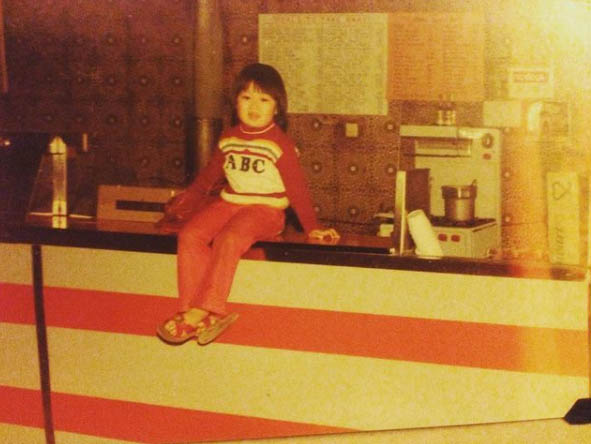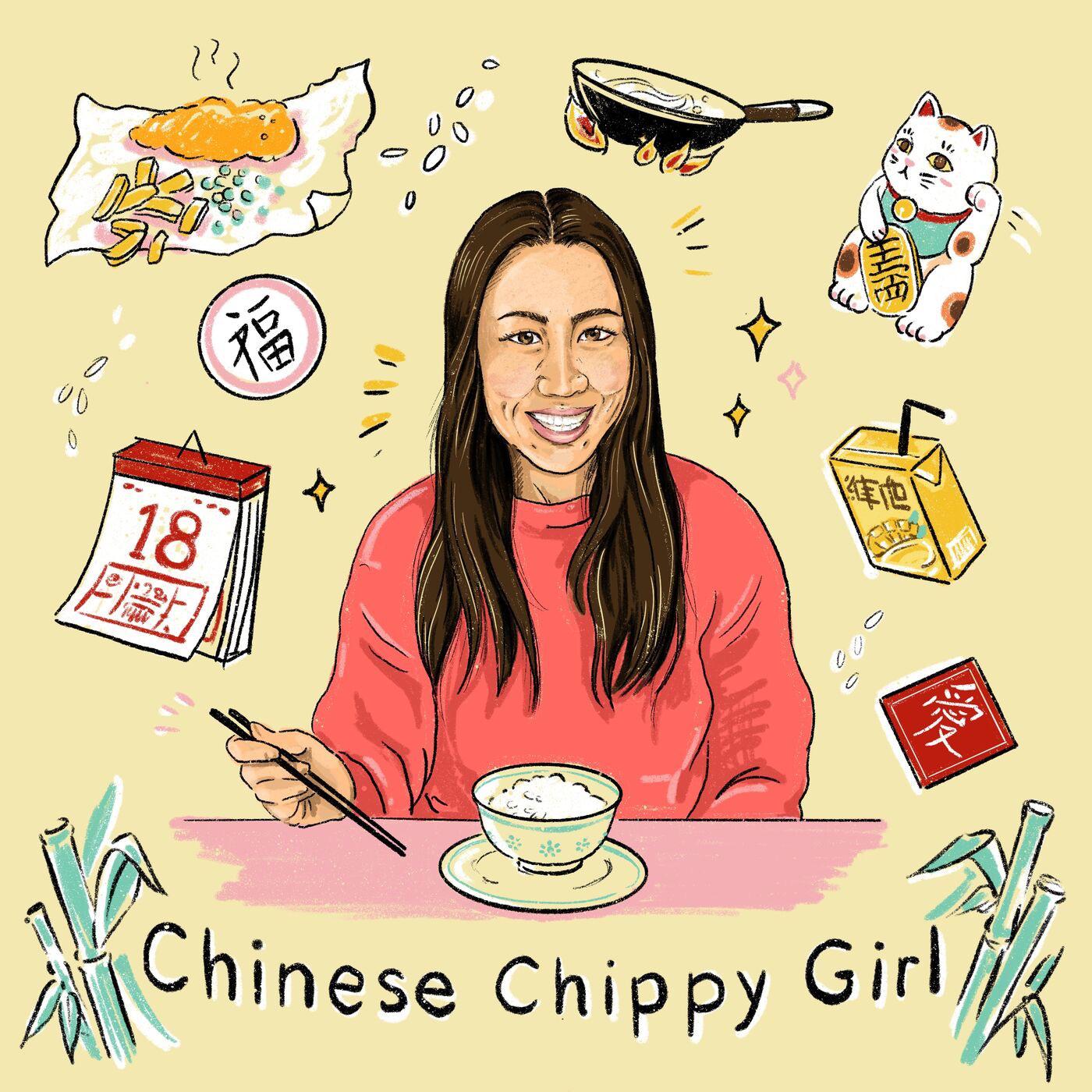Chinese Chippy Girl is a particularly interesting podcast because it talks about growing up Chinese in the UK.
The host is Georgie Ma (馬珮瑶) who grew up in Macclesfield, England, near Manchester. In the first episode of her podcast, she shares her experience being Chinese in the north of England. Other episodes are in an interview format with other British East/Southeast Asians.
This post is based on the first episode of the blog, where Georgie shares a 30 minute overview of her nearly 40 years being British Chinese.
Her parents own a fish and chip shop, aka a “chippy,” which explains why she’s called Chinese Chippy Girl. Georgie is a British-born Chinese person who grew up there in the ’80s and ’90s, and if you listened to her podcast, you’ll hear her northern English accent (i.e. don’t expect any BBC accent from this BBC).

Small Chinese population, big racisms
She lays out the statistics of the Chinese in the UK, “There’s just very little representation of other British Asians particularly the British-born Chinese,”
“Wikipedia says there’s 400,000 people in England and Wales this is basically 0.7% of the population so not even 1% of population [are] Chinese people
“The really interesting thing about that is about 24% of that 400,000 people are British born so that’s about you know 96,000 people in England and Wales are British born Chinese one of them so I just feel quite unique.”
From what I gathered, growing up as the sole Chinese person (until her brother joined her) in Macclesfield “wasn’t great,” and “really tough.”
“A few people have asked me what my childhood was like in Macclesfield and it’s such a weird question because, I would love to say, ‘Yeah, it was great it was amazing the reality was it was actually… wasn’t that great,” she said.
She got picked on for being Chinese and was called the “C” word (as she put it) quite often.
“They were saying it just to bully me, but at I really just brushed it off I didn’t I never thought it a few times and maybe cried about it,” she said. It was a case of play along to fit in, although that left her quite disgruntled and regretful that her inaction might tacitly imply it was OK to do so.
One anecdote that kinda made me think of many Asian-American’s experience is school lunches. Georgie told a story about how her mother packed a sandwich with char siew and egg for lunch but that invited her peers’ mockery.
“I just got so embarrassed and then and I just threw in a bin,” she said.
The best summary of how she feels is this,
“I’m British. I was born here. I was born in Macclesfield, [I have] a British birth certificate, have a British passport. I’m British too. I’m just like any other white British person here or black British person. Britain is my home so yeah with all racism comes being a BBC yeah it really does suck,” she said.
The quote above really echoes the grievances that Lily Kwok has mentioned. As a less-than-one-per-cent minority in Trinidad, she gripes about how she’s sometimes seen as foreign despite being born and raised Trinidadian.
She failed parental expectations
Georgie spoke about a theme that seems universal to all Chinese families — the idea of expectations placed upon children.
Georgie said she’s a “black sheep” because unlike her sister, she did not marry a Chinese man. Georgie also said her parents favoured her brother because he is male and he also came to be a doctor.
Faced with racism, keep your head down
Georgie talked about how her parents reacted when she felt low about racism and shared her troubles with them.
“I don’t know if anybody else can relate this but whenever I felt low about racism I felt they never encourage me to can speak out about it.”
“Then they’re always saying to me like just ignore them and they’ve been brought up wrong and they’re bad … and yeah just got to ignore it,” she said. “I just felt the never really said to me to tell the teacher because I think they just wanted to avoid this confrontation.”
Not a model minority, but still pressured to be one
Georgie also felt pressured to be a “model minority.”
On this note, I should really go find out whether this idea of us Chinese being a model minority is an Anglo idea. Is it only a white, Anglo-Saxon, idea? Does it exist in non-white but English-speaking countries like Jamaica and Trinidad? Does it exist in Spanish speaking countries in the same way?
She didn’t want to go to university, but she felt pressured so as not to be the odd one out in her family.
She also described herself as “bubbly” and that didn’t fit in with people’s construct of what a Chinese person should be. I actually wonder if this has links to her being female and Chinese, where, in Anglo countries, there’s this idea that Chinese women are submissive and low key.
Georgie’s weekly connection to the Chinese in the UK
On the topic of going to Chinese school, Georgie mentioned that she didn’t last for long going to Saturday Chinese school.
She said she went to school Monday to Friday and then worked at her parents’ restaurants after school. By the time Saturday came, it was the last thing she wanted to do.
She mentioned her Chinese church, though, which she described as a place of comfort because no one would question her Chinese identity. Her favourite summer period was Teens Camp.
“I just felt really at home every summer when we would have Teens Camp. It’s just so good. I remember the last days of the Teens Camp that we had I just got really sad like I just had to go back to Macclesfield, had to go back and help my parents out at the shop, and absorb all the Chinese racist slurs at me.”
She also reminiscences about dim sums with her family and her cousins.
“My family, my cousin’s family were basically just put it on the biggest round table and our parents would just order everything for us,” she said.
Chinese in the UK: the good parts
I always find it quite difficult to write these articles because half or more of the article can be about racism. Luckily, Georgie provided a section in her episode about the good parts about being Chinese in the UK.
The first point she mentioned is that being British-born Chinese makes her unique.
The second point is that she can speak Cantonese. She sees her ability to speak broken Cantonese an advantage on both her CV and her travels.
Georgie also expresses how being Chinese embeds an appreciation for gastronomy. She says dim sum is her favourite food of all time and she spoke nostalgically about having a Chinese dinner with her parents.
The podcast
You can find Georgie’s podcast, Chinese Chippy Girl, here and her Instagram is here.

Leave a Reply